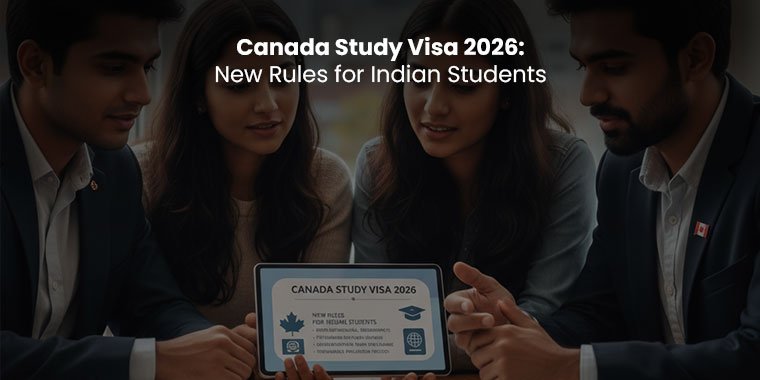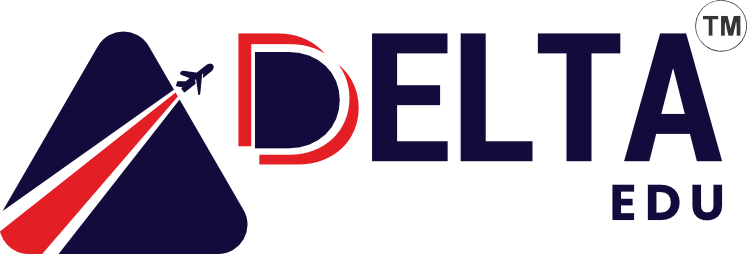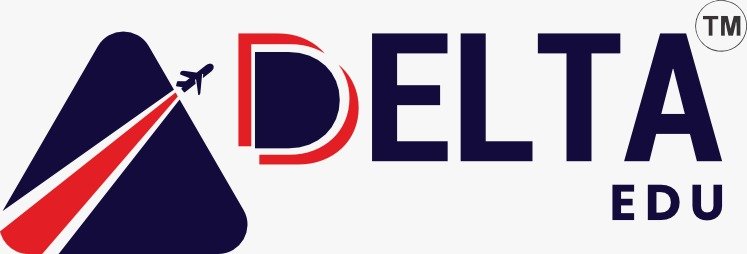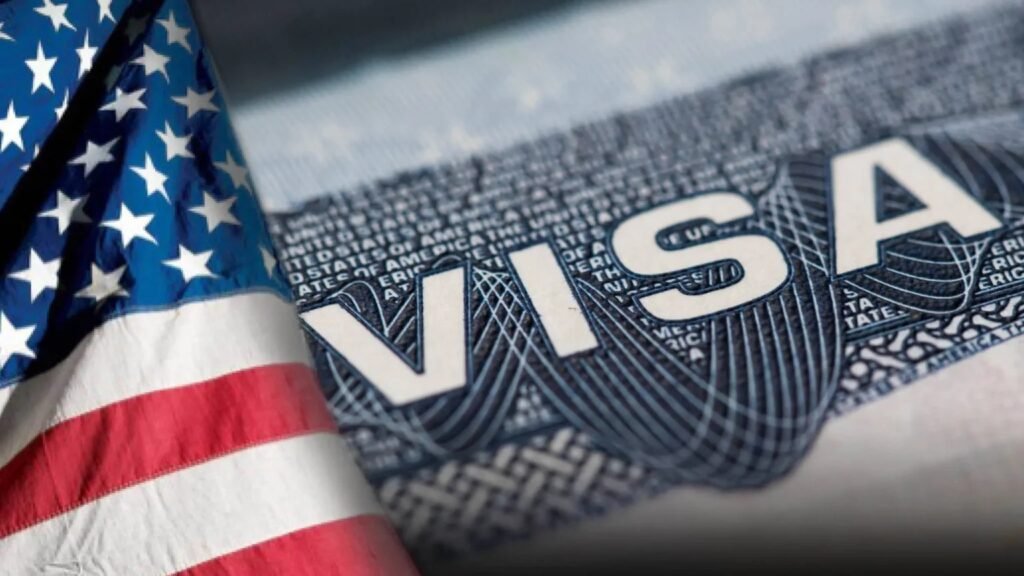
The country has emerged as a preferred destination for Indian students seeking quality education and global exposure. New dynamics have entered the study visa route following Canadian immigration policy changes implemented in 2025, which continue to impact Indian students planning to study in Canada in 2026. The changes aim to address a variety of domestic problems but have significant implications for prospective international students, most notably Indians. This detailed article discusses the new visa rules and offers some information to help Indian students effectively navigate the new Canada study visa process.
Overview of Canada’s New Visa Policies
Canada introduced tighter immigration laws in 2025, and these regulations remain applicable in 2026, continuing to impact study and work visas for international students. Of particular significance was an amendment to the Immigration and Refugee Protection Regulations to provide officials with more leeway to revoke study and work permits under certain circumstances.
Key Changes Affecting Indian Students
Reduction in Study Permits
Canada has also cut down the number of study permits given to foreign students. Since 2025, Immigration, Refugees and Citizenship Canada (IRCC) has reduced the number of study permits issued to international students, a policy that remains in effect in 2026 to manage housing and public service pressures. The cuts are meant to ease pressure on housing, health care, and other services that have been stretched thin by rapid population growth caused by immigration.
Introduction of Provincial or Territorial Attestation Letters (PAL/TAL)
As of 2026, applicants are required to submit a Provincial or Territorial Attestation Letter (PAL/TAL) with their study permit application to comply with provincial international student limits. to comply with provincial limits on international students. This requirement assists with the allocation of international students by provinces and territories.
Expanded Power to Terminate Permits
Updated regulations introduced in 2025 continue in 2026, allowing Canadian authorities to cancel study and work permits if permit conditions are violated. according to the previously mentioned conditions. It also sends a strong message that it is essential to follow the terms of one’s permit to the letter.
Financial Requirements
Candidates must demonstrate sufficient financial resources to cover tuition fees, living expenses, and return travel, as per IRCC’s latest financial guidelines applicable in 2026. This evidence is important to receive a study permit.
An Updated Step-by-Step Process to Study Visa for Canada
- Acceptance from a Designated Learning Institute (DLI): Obtain an acceptance letter from a Canadian DLI. The institution should be approved by the Canadian government to receive international students.
- Gather Required Documents: Have the following necessary documents ready:
- Proof of Identity: A valid passport and recent passport photos.
- Proof of Financial Support: Documentation proving adequate funds to pay tuition fees, living costs, and return travel.
- Explanation Letter: A letter outlining your research goals and your perception of your roles as a Canadian student.
- Provincial or Territorial Attestation Letter (PAL/TAL): Get this letter to meet provincial limitations on international students.
- Online Application Submission: Set up an account on the Canadian government’s official website and fill out the study permit application form (IMM 1294). Verify that all details are true and backed by supporting documents.
- Biometrics Appointment: Once you have submitted your application, book and attend a biometrics appointment at an authorised Visa Application Centre (VAC). This process includes taking fingerprints and photos.
- Medical Examination: You are required to take a medical examination by a designated panel physician to confirm that you are up to par on health standards for admission to Canada.
- Interview (If Necessary): There are occasions where you may be required to attend an interview at a Canadian consulate or embassy, where you will explain your reasons for studying there and your intentions.
- Visa Decision & Passport Submission: You will be notified when a decision has been reached. If granted, you will submit your passport to VAC for visa stamping.
- Prepare for Arrival in Canada: All documents must be ready before any trip, including a visa, an acceptance letter, proof of funds, and other required documents.
Tips For A Successful Application
- Apply in Advance: Start your application on time to deal with any delays.
- Document Precisely: Ensure that documents are kept updated and accurate, and meet all the requirements they are supposed to.
- Keep Updated: For an individual believing that the Canadian immigration website can be checked several times for later updates on visa rules and requirements, that individual is absolutely right.
- Consult Professionals: Consult education consultants or immigration experts to set you on the right path.
How Delta Immigration Can Assist You
Seeking an international education can be exciting as well as demanding. Delta Immigration offers personalised study abroad consultancy, including university selection, career advice, and visa assistance.
- Personalised Guidance: Delta Immigration offers personalised guidance to align your educational goals with suitable programs and institutions. Their experienced consultants assist you in selecting the right university and course, ensuring it is in line with your career aspirations.
- Application Support: University application processes can be intimidating. Delta Immigration helps you prepare and review your application documents to satisfy each institution’s unique needs.
- Visa Processing Support: Understanding and adhering to visa requirements remains paramount. Processing of visas and documentation, as well as interview preparation for the visa application. All the processes are done by the experts in Delta Immigration.
- Pre-Departure Services: Getting a visa is somehow one stage in preparing to live in a foreign country. The pre-departure orientation offered by Delta Immigration will ease your transition into the culture and academic environment in Canada.
FAQs
Why did Canada reduce the number of study permits for 2026?
The reduction aims to alleviate pressures on housing, healthcare, and other services strained by rapid population growth due to immigration.
What is a provincial or territorial attestation letter (PAL/TAL)?
A PAL/TAL is a document required to ensure compliance with provincial caps on international students. This helps manage their distribution across regions.
How do the new regulations affect the authority of officials regarding study permits?
Officials now have increased authority to cancel study and work permits if holders are found violating permit conditions.
How long does it typically take to process a Canadian study permit application?
Processing times for Canadian study permits vary depending on the applicant’s country of residence and the completeness of the application. Processing times in 2026 vary depending on the applicant’s country of residence, application volume, and document accuracy. Applicants should regularly check the official IRCC website for the most current processing timelines. However, it is advisable to apply well in advance of your intended program start date to accommodate any potential.
Note (Updated 2026): Canada study visa rules and processing timelines may change. Applicants are advised to refer to the official IRCC website for the latest updates.





